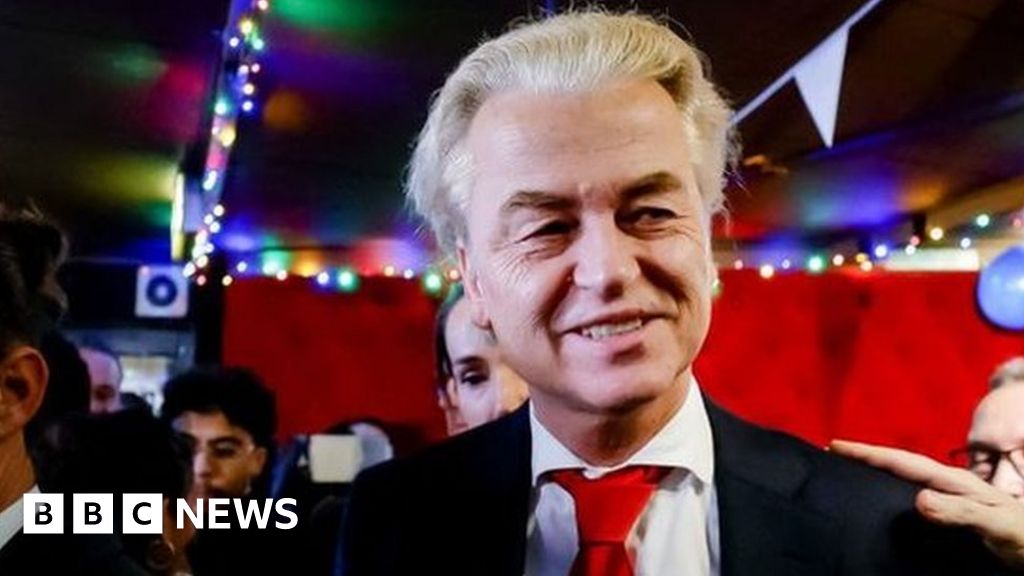The unexpectedly meaty win for controversial, hard-right politician Geert Wilders in Wednesday’s general election in the Netherlands set international headlines on fire.
Right-wing nationalists across Europe rushed to congratulate the populist politician, sometimes dubbed the Dutch Trump - partly for his dyed, bouffant-like hairdo, and partly for his famously firebrand rhetoric.
Geert Wilders’ publicly expressed views - including linking Muslim immigration with terrorism and calling for a ban on mosques and the Quran - are so provocative that he has been under tight police protection since 2004.
Wilders was convicted of inciting discrimination, although later acquitted, and he was refused entry to the UK back in 2009.
But Europe’s far right believes their views have now become more mainstream.



This is the best summary I could come up with:
The unexpectedly meaty win for controversial, hard-right politician Geert Wilders in Wednesday’s general election in the Netherlands set international headlines on fire.
Geert Wilders’ publicly expressed views - including linking Muslim immigration with terrorism and calling for a ban on mosques and the Quran - are so provocative that he has been under tight police protection since 2004.
Far-right Flemish independence leader Tom Van Grieken, who hopes for a similar election breakthrough in Belgium to Geert Wilders in the Netherlands, was quick to conclude: “Parties like ours are on their way in the whole of Europe.”
He would join a chorus of voices at the leaders table, including Ms Meloni, taking a hard line on EU migration and asylum policies.
But it would be too simplistic, I believe, to conclude Geert Wilders’ election success shows far-right, hard-right, nostalgic nationalist, populist parties - there are so many labels, and this is not a one-size-fits-all debate - are “taking over Europe”, as some commentators suggest.
The European Commission would do well not to appear too dismissive of Geert Wilders, and what his election success tells us about political winds blowing across Europe.
The original article contains 883 words, the summary contains 190 words. Saved 78%. I’m a bot and I’m open source!
I’ve never heard that term before but it’s a fitting description for a lot of political parties.